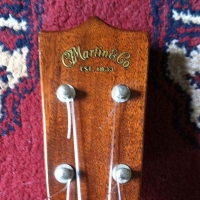DjangoBooks.com
Welcome to our Community!
Categories
- 17.9K All Categories
- 396 General
- 257 Welcome
- 10 Archtop Eddy's Corner
- 74 CD, DVD, and Concert Reviews
- 29 FAQ
- 9 Gypsy Jazz Italia
- 17 Photos
- 24 Gypsy Picking
- 3 Unaccompanied Django
- 1 Pearl Django Play-Along Vol.1
- 1 Gypsy Fire
- 21 Gypsy Rhythm
- 552 Gypsy Jazz University - Get Educated
- 104 Gypsy Jazz 101
- 176 Repertoire
- 128 History
- 88 Technique
- 39 Licks and Patterns
- Daniel Givone Manouche Guitare Method Users Group
- 17 Eddie Lang Club
- 1K Gypsy Jazz Gear
- 648 Guitars, Strings, Picks, Amps, Pickups and Other Accessories
- 316 Classifieds
- 36 Recording
- 38 Other Instruments
- 17 Violin
- 3 Mandolin
- 6 Accordion
- 3 Bass
- 9 Woodwinds
- 197 Gypsy Jazz Events
- 78 North America
- 81 Europe
- 38 International










Comments
One day I was talking to him about training and he was not very interested. So I asked him what he had done and he said.
'I started competing at eleven and raced most weeks and cycled to school and then work and back.'
I laughed and said,
'I'll do that next time'.
Thomas died on his bike, literally, boarding a ferry between two Northern Isles on a cycle tour.
Would it be ridiculous to suggest that he never trained ? I think so, but he might have seen it differently.
D.
By the end of life, he probably knew the basic names of certain chords, but everything else was learned through life experience.
That's why I always stress the importance of trying to learn tunes by ear and not by using sheet music (nowadays Ipad). The more tunes u learn by ear the quicker u'll be able to memorize them, and you'll also internalize the sounds.
www.denischang.com
www.dc-musicschool.com
I think Django was highly "schooled". I think it's is obvious from one minute of listening to him play. But "the school" was between his ears, and no one else attended class. He was the teacher, the librarian, and the student.
I believe that he was not just the leading "theorist" of his time, he seems to me to be the leading Improvisational composer. His education is in a "class" all its own. His education has also proved impossible to reconstruct, though good minds (and guitar players) have tried.
The problem is we associate "education", "learning", "knowledge", etc.....with formal and largely written or at least linguistic forms and to be done in libraries and classrooms.
But really, what does dance, music, and art have to do with any of those things that depend on language and what we associate with "education". They might be all about them, but they might also be largely or entirely independent.
This concept of education so prevalent that even someone at the top of a field of endeavour will still say they are "uneducated" just because the word implies formalized instruction and what they've learned was from a different path.
From what I have read he had little interest in discussing music. He listened and played.
Sometimes it is a I others a II others a III or a IV a V or a bV a VI or a bVI bVII or a VII. It doesn't really exist out of context unless it is OK for it to have no meaning.
If the question robs the answer of context do we give up on questions ? Or do we improve them.
I know which option I prefer. I also realise that there is an easier position to sell which is more self congratulatory and leads to .... nothing.
But I repeat myself.
D.
But why trouble Bireli with even such a specific question ?
Simply put on any album of his and usually he will usually have answered that in the first minute of the first track, on the guitar. But maybe only for that song, on that day.
D.
PS, bIII7 also.
www.denischang.com
www.dc-musicschool.com
Generally speaking, with whatever new phrase, riff, chord comping idea, etc, that I'm learning, I need to know enough theory to transpose it, and to know when to use it, where to put it, etc.
Anything more, and I get bogged down. The amount of theory that can bog you down varies as well per person.
Anthony
youtube.com/user/TheTeddyDupont